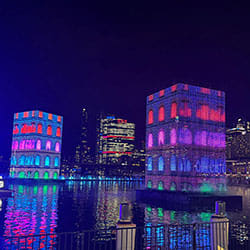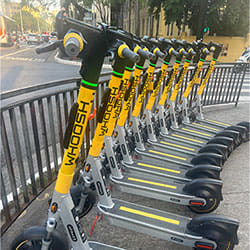Although tourism is now suffering from the worst global crisis in its history, there are still messages of hope and positivity, despite everything.
In fact, while waiting to start moving again, initiatives to travel from the sofa flock thanks to web platforms where you can explore destinations with a click.
Not to mention the social campaigns of tourist agencies and operators who, while waiting to resume their activities, are trying their best to stimulate the users' imagination by asking them to share proposals, suggestions and holiday ideas.
There are many initiatives that are looking ahead to project us beyond the boundaries imposed by the virus.
You can for instance visit the heart of London without moving from the sofa.
With their premises closed, arts institutions are now therefore resorting to digital platforms, which audiences can access without leaving their homes.
In the United Kingdom many museums have ‘opened their digital doors’ to attract visitors and keep the interest alive in people.
Art and culture may not be essential for living like food is but it is certainly true that we need to feed our minds too somehow.
The great majority of London museums are all online. The digital version of the British Museum offers the viewing of (among others) the Rosetta Stone, Easter Island sculptures, Egyptian mummies and the Parthenon.

The collections of the British Museum
In London the Hayward Gallery, which is part of London's Southbank Centre, is offering ‘walk-through tours’ of its previously scheduled exhibitions even if its physical location is now closed.
Looking to more traditional channels, the famous British TV channel BBC has announced plans to run an essential arts and culture service across all platforms that will keep the arts alive in people's homes during this pandemic.
They even organised a virtual festival of the arts which they are calling “Culture in Quarantine.”
Inaugurated less than a month ago and closed to the public a few days later, the great retrospective dedicated by the Tate Modern Museum to the father of pop art, Andy Warhol,
had been opened to the public on 12th March, but due to the Coronavirus pandemic was closed shortly afterwards and could not get many visitors.
The Andy Warhol exhibition - which should theoretically end on 6th September - collects over 100 works that cover the entire career of the father of Pop Art, reflecting on how his research influenced not only art but also the mentality and the society of his time.
To conduct the special guided tour of the exhibition are two curators of the museum who discuss Warhol focusing on particular themes of his life and his art: the condition of immigrant, his identity and his reflections on death and religion.
In a way we are missing out not visiting this great exhibition in person but, on the other hand, curating an exhibition means offering a projection on the artist and his production more in depth thanks to the deep explanation of the curators so everyone can better understand Warhol or any other artist that perhaps could not understand so in depth by visiting the museum without a guide (normally too expensive or considered for tourists only).
Also the National Gallery on the famous Trafalgar Square is now offering a virtual tour you can do from your pc, smartphone or tablet.
These virtual tours of the National Gallery in London have been active for some years but they obviously never had so much popularity as they are having now.
One of the available options allows you to take a journey inside the so-called Sainsbury Wing even using Virtual reality viewers (if you are lucky enough to have them), a cutting-edge technology to rediscover works from centuries ago in a completely new and modern way.

The National Gallery before Covid






























































